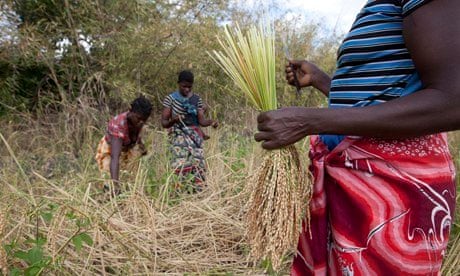“I
like to spend some time in Mozambique / The sunny sky is aqua blue / And all
the couples dancing cheek to cheek / It’s very nice to stay a week or two…” Bob
Dylan sang those words in 1975 when Mozambique first gained its independence.
It’s probably one of his lesser-known songs, but it’s one of my favorites. His
romantic views certainly created a different view of this country than what
most Americans probably saw or to say the least, expected from him.
The first people to come down here were part of the Bantu migration. They established agricultural communities here and brought with them practices like herding cattle. They also had figured out how to smelt and smith iron. Settlements began popping up along what was known as the Swahili Coast, which later became important stops in the trade routes between southern Africa and Arabia, Persia, India, and Portugal. Once the Portuguese explorer Vasco da Gama landed in southeastern Africa, he claimed it for Portugal and immediately set up trade posts. There were quite a bit of lucrative deals and slavery transactions between the Portuguese and Arab traders up until the 1700s. And while the Portuguese had control over much of the eastern seaboard of Africa, the Arabs pushed the Portuguese farther to the south. During the 1800s, European powers—namely the British, the French, and the Portuguese—continued to make strides in their involvement of the trade, commerce, and politics of southern Africa. Although slavery was technically abolished during the late 1800s, Portugal thought privatization would be the best way to administer their African holdings. So, instead of “slavery,” the people here were often forced to work in mines and other sectors and barely paid (if that). As policies were put in place to benefit the Portuguese population while practically ignoring the needs of its native population, talk of independence began to grow. The native Mozambicans began to form a guerilla response to the Portuguese. While tensions built up for nearly a decade, it culminated in 1975 with a military coup, and about a quarter of a million Portuguese left the country. In fact, they were forced to leave the country within 24 hours with only 44 lbs of luggage; most left so much of their assets and items that they returned rather broke. Things weren’t easy after independence: they were immediately involved in a civil war from 1977–1992. They held their first democratic elections in 1994. While those on the losing sides complained about the results throughout the years, it has generally went well. For the most part.
The vast majority of Mozambicans work in agriculture and fishing. Other economic drivers include energy, metallurgy, tourism, and transportation. After they gained their independence, the country went through some economic struggles, especially in response to the civil war that ensued along with weather-related problems that affected crop production. A few years ago, they replaced their currency with the New Metical, and through privatization of business from state-owned enterprises, Mozambique has went through a series of measures to try to strengthen their economy and move past recent corruption scandals.
The official language is Portuguese, and most of the people who live in urban areas speak it as their first language. There are several other tribal languages spoken by significant portions of the population. The largest (spoken by nearly a quarter of the population) is eMakhuwa. There are several mutually intelligible languages and related dialects that are also spoken. Other languages include Swahili, Xichangana, eLomwe, CiSena, and eChuwabo.
Mozambique’s coastal waters contain coral reefs with some of the world’s highest biodiversity. More than 1200 species of fish have been identified swimming off of the coast. Several endangered species of sea turtles call Mozambique’s coast their home. I guess there must be something in the water. And you know me—I love words. And I love word games. The word Mozambique is the highest scoring one-word country name you can use in the game of Scrabble, coming in at a whopping 34 points! It’s also one of those words that contain all five vowels. So, if you want to impress someone, you know what word to play.








No comments:
Post a Comment